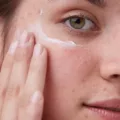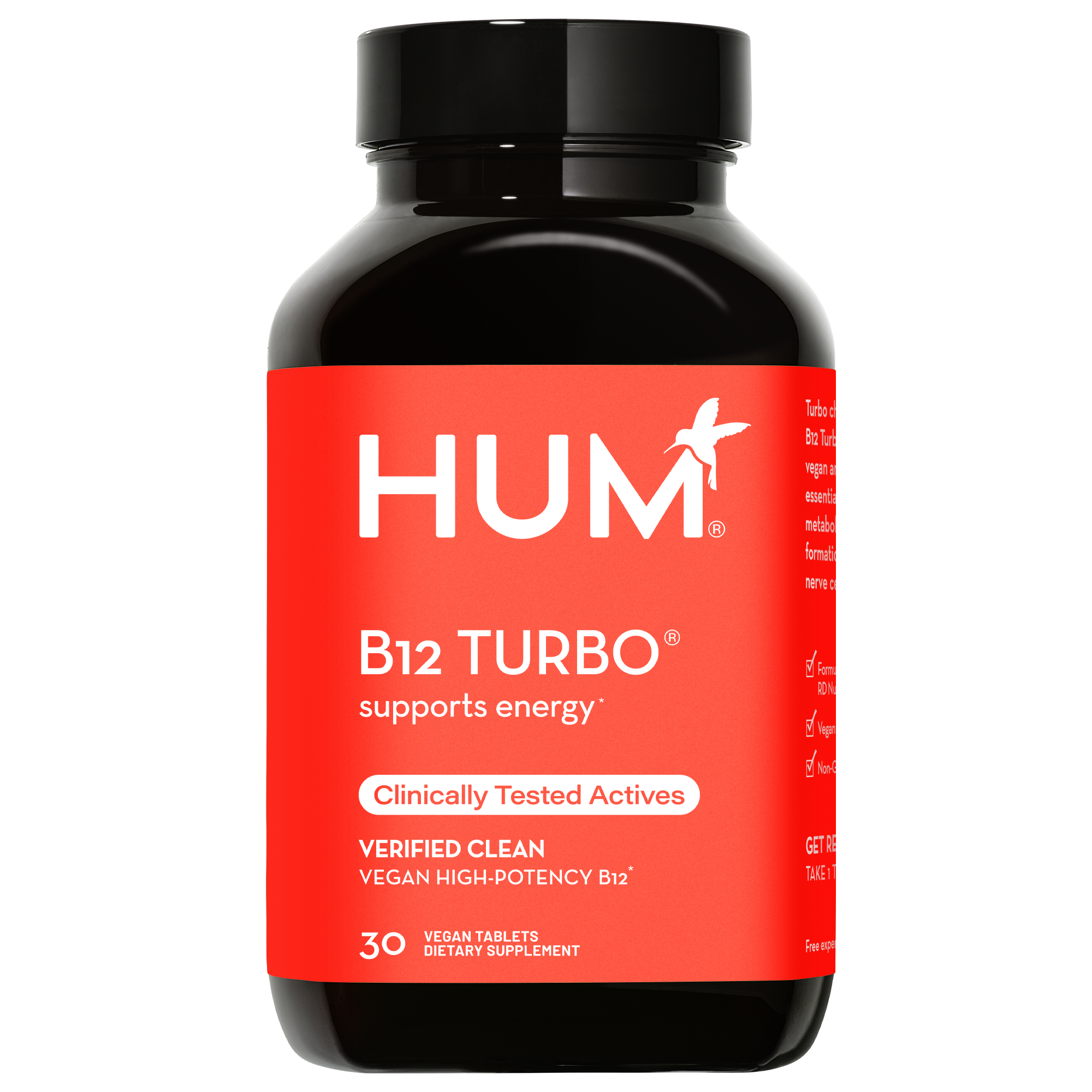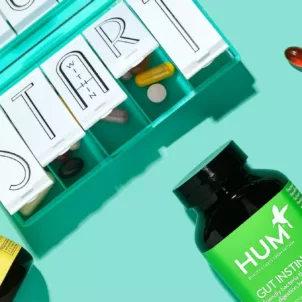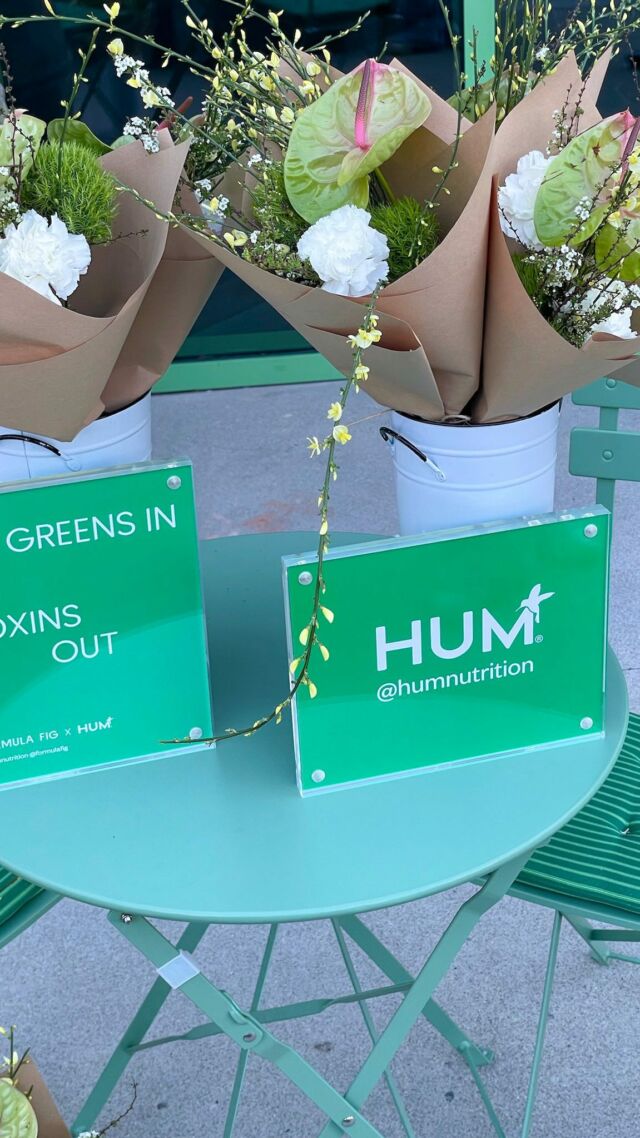Struggling with cracked lip corners that just won’t go away? You could be dealing with angular cheilitis instead of chapped lips. Certain diets may leave you more at risk for this symptom—here’s what you need to know.
You’ve got your trusty lip balm—and you’re swiping it on all day, every day—but you’re still dealing with cracked lip corners. If that’s the case, there’s a chance they may be more than just flaky, chapped lips, especially if nothing seems to fix it. It may be a condition called angular cheilitis.
Find out what causes cracked lip corners, how they differ from dry, chapped lips, and how to heal cracked lip corners fast.
What Causes Cracked Lip Corners?
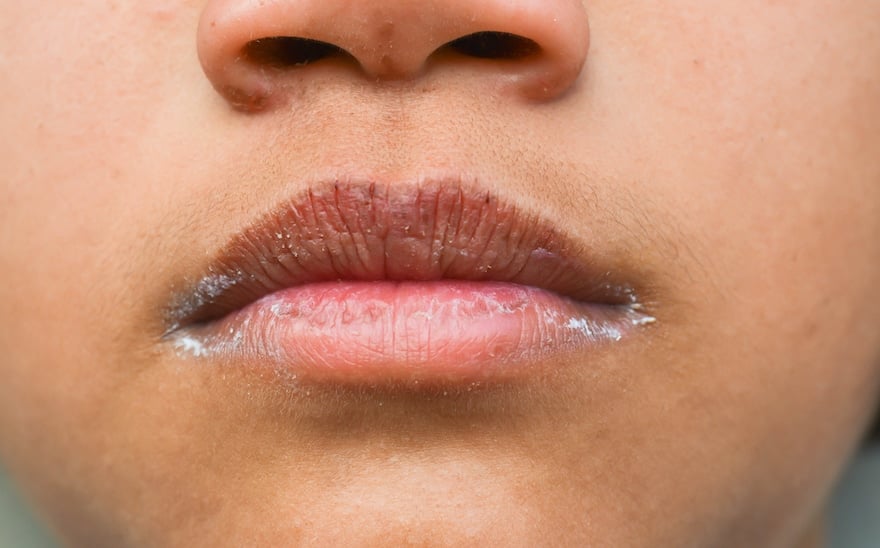
One of the main culprits behind cracked lip corners is angular cheilitis, a fungal infection. Angular cheilitis has a few common causes:
Nutritional Deficiency
“Nutritional deficiency is one of the more common reasons why someone may have these cracked lip corners,” says Angelique Freking, DDS, dental director of Park Slope Dentistry in Brooklyn, New York. (Which might explain why your lip balm strategy isn’t working.) Specifically, having a vitamin B12 deficiency, iron deficiency, and a lack of protein can lead to angular cheilitis. B12 is a water-soluble vitamin that is involved in red blood cell formation, nervous system function, and DNA synthesis, but your body only gets it through the diet (specifically from animal products) or supplements. Along with cracked corners of your mouth, signs of B12 deficiency include joint pain, numbness and tingling in hands and feet, depression or anxiety, and yellowing of the skin.
If you’re vegan, vegetarian, or follow more of a plant-based diet, you may be more at-risk for these vitamin deficiencies. It’s important to note that being a vegan itself doesn’t cause nutritional deficiency. But not following a well-planned vegan diet, where you’re not replenishing the nutrients you’d otherwise get from animal foods, can put you at risk of falling short on these important nutrients. About half of vegan adults were found to be deficient in vitamin B12, according to a past research review in the European Journal of Clinical Nutrition. Vegetarians were also found to be at risk of this deficiency.
So, how does a nutritional deficiency lead to angular cheilitis? Research suggests that nutrient deficiencies affect oral tissue homeostasis (or the growth process of new cells), decrease resistance to things like bacteria and fungi, and put a damper on tissue repair. Additionally, a study found that your oral health is somewhat dependent on vitamin B12 and a deficiency can lead to a range of oral problems. Finally, a vitamin B12 deficiency can negatively impact your immune system, which can make you more susceptible to things like fungal infections.
Excess Saliva
Cracked lip corners are also common amongst elderly folks who wear dentures or babies who use a pacifier. In both situations, the corners of the mouth act like a reservoir for saliva, and the wetness creates a perfect environment for inflammation and cracking.
Oral Thrush
Oral thrush, a fungal overgrowth, is another possibility that leads to red, cracked corners of the mouth, though the condition typically also comes with other signs, such as white lesions in your mouth, according to Mayo Clinic.
What is Angular Cheilitis?
Angular cheilitis is an inflammatory skin condition that targets the corners of your mouth, resulting in cracks, irritation, and sores, according to Cleveland Clinic. Normal fungi that live on your skin can settle into these cracks and grow—and this overgrowth is what causes symptoms like redness, swelling, and discomfort at the corners of your mouth.
Angular cheilitis is often mistaken for cold sores or other bacterial infections, says Dr. Freking, but there are a few telltale signs that what you’re dealing with is angular cheilitis and not something else. “Angular cheilitis is different from having dry lips, something that’s so common in winter,” says Dr. Freking. Chapped lips mean your entire lips are dry, whereas “angular cheilitis really focuses itself on the corners of your mouth and typically on both sides,” she explains. It may feel dry and itchy with a bit of burning.
It’s also possible to have a mild case of this that’s been going on for a long time. You might not even realize it’s affecting you. After all, chapped lips are so common, it’s easy to assume that’s what’s going on. And it’s also easy to get used to them and tolerate the condition, brushing it off with oh, the corners of my lips have just always been dry.
How to Heal Cracked Lip Corners Fast

Looking for angular cheilitis treatment? First thing’s first: You’ll want to get to the bottom of what could be causing your cracked lip corners before moving on to treatment. This might involve getting a blood test to check for a nutritional deficiency (especially if you’re vegan, vegetarian, or on another diet). Or, it might involve chatting with your dentist to see if it’s the result of irritation from your toothpaste or aggressive flossing habits. In that case, talk about better options for you in both products and techniques.
Tackle Your Diet
If you have a nutritional deficiency, the first step is tackling your diet. “I’ve known people who have gone entirely plant-based and start eating lots of vegetables, but they haven’t been conscientious about replacing the vitamins that are in meat and dairy,” Dr. Freking says. A well-planned diet will help you focus on plant-based foods that are rich in these nutrients (such as nutritional yeast, lentils, and kidney beans for B12, and spinach for iron). If your diet is low in protein, you can add vegan protein sources like lentils and beans, tofu, tempeh, nuts, and seeds.
Supplement as Needed
While it’s important to add these nutrient-rich plant-based sources, you may still need a supplement to reach your daily B12 intake. HUM Nutrition’s B12 Turbo contains 1,000mcg of B12 in its most bioavailable form. If you’re a vegetarian or vegan, it’s reasonable to take a B12 supplement and see if it helps you, says Dr. Freking. Make sure to follow up with your doctor to recheck levels as advised.
Care For Your Lips
In addition, also maintain some smart lip-care habits. Avoid licking your lips, which has been shown to lead to angular cheilitis. Use lip balm regularly to hydrate lips. Once your angular cheilitis clears, you can toss your old lip balm and get a new one, says Dr. Freking. It’s not an absolute must, though (you won’t reinfect yourself with the old one, but a fresh one is best.).
Seek Professional Help When Necessary
Lastly, never hesitate to reach out to your dentist or another health professional about questions you have regarding new lip symptoms you don’t understand. “As dentists, we look at heads and mouths all day long, and looking at your lips is part of the exam,” says Dr. Freking “We’ll have a good idea if something is normal or not—and if something doesn’t look quite right, we may refer you to another doctor.” From there, it should be all smiles ahead.
